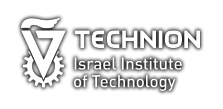
Jackeline Soto received her B.Sc. in Industrial Chemistry from Universidad Nacional de Costa Rica in 2014. Then, she completed her Licenciatura in Polymer Chemistry at Universidad Nacional, focusing on the biosynthesis of gold nanotriangles and their characterization. This research was carried out under the supervision of Dr. Oscar Rojas Carrillo from Laboratorio de Investigación y Tecnología de Polímeros. In this research, liposomes were applied as a template phase to generate gold nanotriangles. During this time, she was also a collaborating student in a FEES project called Smart Materials. In this investigation, chitosan was obtained from shrimps, characterized, and applied as stabilizing agent in multiple systems. After that, she pursued an M.Sc. degree in Materials Science and Engineering at Shanghai Jiao Tong University under the supervision of Prof. Hougjing Dou. In this project, she designed conjugates based on dextran and oleic acid and used them as primary building blocks in the biosynthesis of microcapsules. In 2020, she moved back to Costa Rica, and she learned how to purify gold nanotriangles by using centrifugation and depletion-induced flocculation (micelles with different compositions), highly increasing the concentration of gold nanotriangles in the system. In May 2023, she joined the TheraTools doctoral network of the Marie Skłodowska-Curie Actions for dual Ph.D. under the supervision of Prof. Marcelo Calderón (POLYMAT/University of the Basque Country, San Sebastian, Spain) and Prof. Alejandro Sosnik (Department of Materials Science and Engineering, Technion – Israel Institute of Technology). Her research is focused on developing a reproducible methodology to obtain protease-sensitive nanogels, encapsulate and release antibodies, after crossing the blood brain barrier, in the environment of glioblastoma cancer cells.


